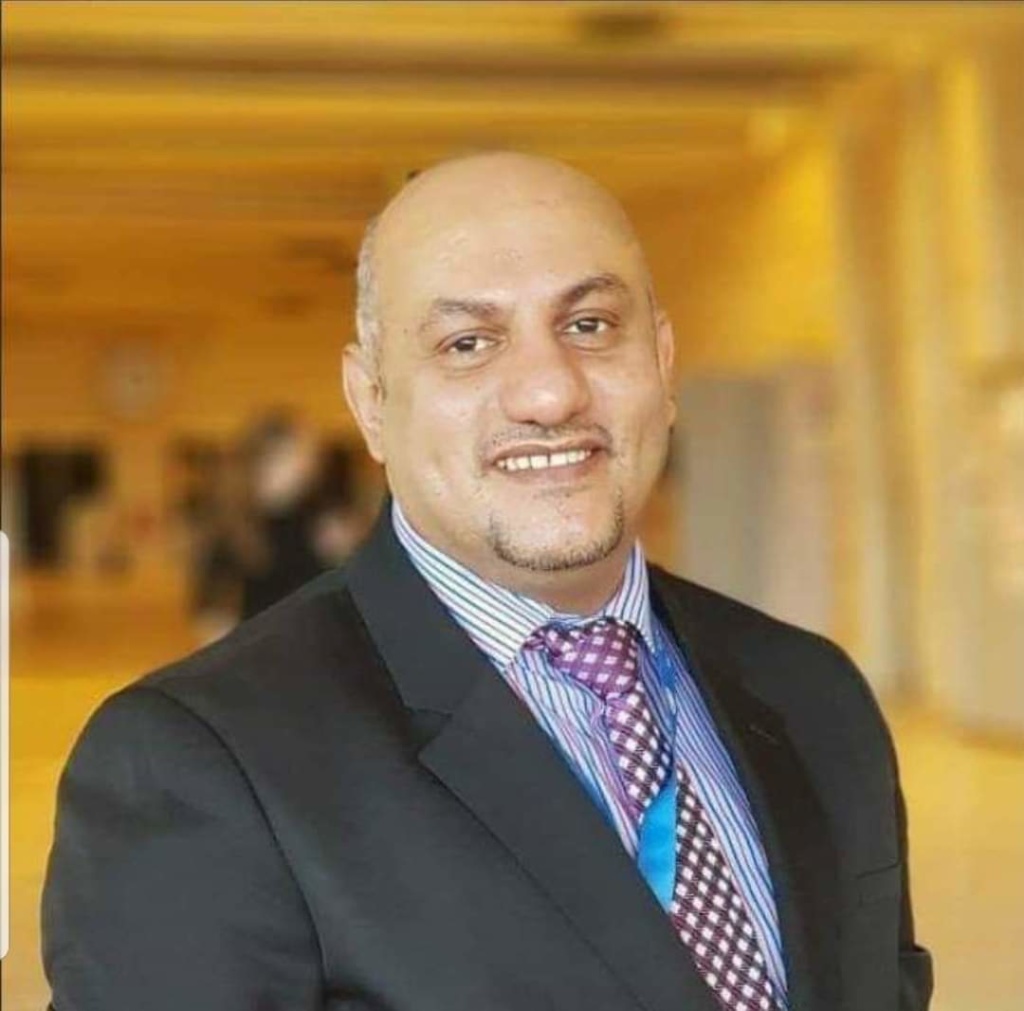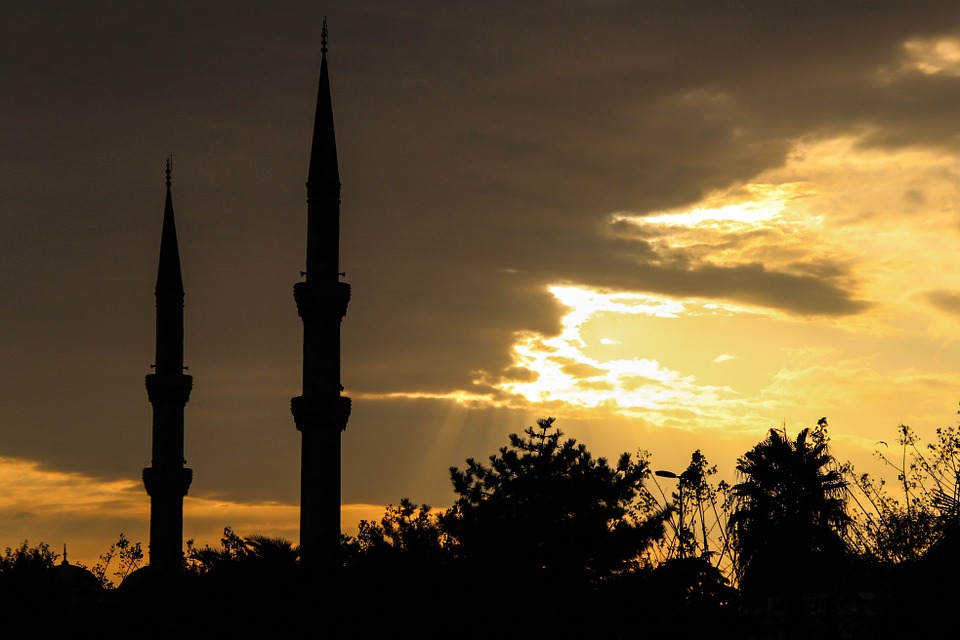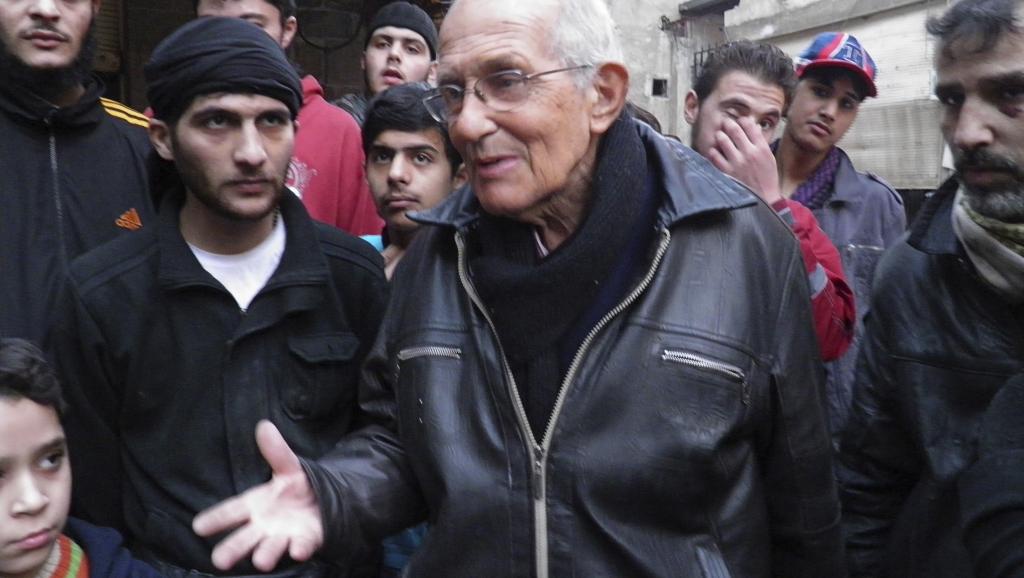Yemeni journalist Nabil Alosaidi
From the risk of death to the platforms to defend freedom of expression
Nabil Alosaidi is a Yemeni journalist and member of the Council of the Yemeni Journalists Syndicate since 2009. He was chairman of the training and rehabilitation committee and supervisor of the freedoms committee of the union. He has been living in Switzerland for three years now because of the war in his country. Nabil Alosaidi participates in many events held at the Human Rights Council to convey the voices of the victims and to identify violations of freedom of opinion and expression. Reporters Without Borders has classified Yemen as one of the most dangerous countries for journalists.
The beginnings
“I began my relationship with the press as a hobby. During my high school studies, I began to write for some Yemeni newspapers. Then, I continued to acquire more journalism skills studying at the Media College and the University of Sana’a. I worked for many Yemeni newspapers until I became a correspondent and director of the office of Okaz, a Saudi newspaper, in Yemen.” tells Nabil Alosaidi.
The struggle for professionalism and independence
Nabil Alosaidi says that the difficulties on professional and personal levels do not allow the independent Yemeni press to appear. The political and partisan activities, political disputes and conflicts between power centers interfere with the functioning of the press in Yemen. The independent press is important in the country where people need to hear an independent voice that belongs to them.
“Personally, I have faced these difficulties with courage, like do many Yemeni journalists who dream of a homeland with independent press and freedom of speech. I’m still struggling for it, while the war keeps attacking the press continuously. All the parties of the conflict arrest journalists and prevent the voices of the other. Journalists are facing blackmail, detention, abduction and are assassinated. Now ten of our young journalists are in trial, facing the risk of execution” tells Nabil Alosaidi.
Seeking asylum in Switzerland
Nabil Alosaidi believes that the profession of journalism has always been dangerous in Yemen, especially over the last few years of the war between many parties disputing power. For instance, in September 2014, the Houthi militias swept through Sana’a and overturned the government taking control of its institutions, including the media and the press. They occupied newspapers, radio and television buildings and closed the opposition newspapers.
Nabil Alosaidi describes the story of his survival saying: “I had to move from one city to the next until I reached the city of Taiz, where I stayed hidden with the help of relatives and friends. After a few months, I had to move out of the sieged city before they could discover my place. It was like an impossible task because of the closure of all the exits of Taiz. I walked a long distance until I managed to exit the city and then moved between cities to reach Saudi Arabia. I stayed there for a few months before I could travel to Switzerland. I was part of a media delegation accompanying the negotiations between the Yemeni government and the Houthi militias in Geneva. Because the war did not allow an independent press and forced the journalists to side by one of the parties in the conflict, I decided to stay in Switzerland seeking protection and freedom.”
Nabil Alosaidi believes that staying in Switzerland has greatly influenced his professional career in the press. Here, he started to defend the victims of the human rights violations in Yemen. The protection and the freedom he obtained in Switzerland allows him to deliver the voices of Yemeni journalists to the international community and to the human rights organizations. He is determined to continue defending the freedom of press and journalist detainees in the forums of international press and human rights until the press recovers in Yemen. While in Switzerland, Alosaidi could also lead a press campaign, the most known and the strongest ever, against corruption in the Yemeni government. He has received the Journalism Award for Integrity and Combating Corruption and the Public Anti-Corruption Personality Award in 2018 for this campaign.
Wafa Al Sagheer
Membre de la rédaction vaudoise de Voix d’Exils
Article traduit de l’anglais vers le français par MHER
Contributeur externe de Voix d’Exils
Version française de l’article ici




